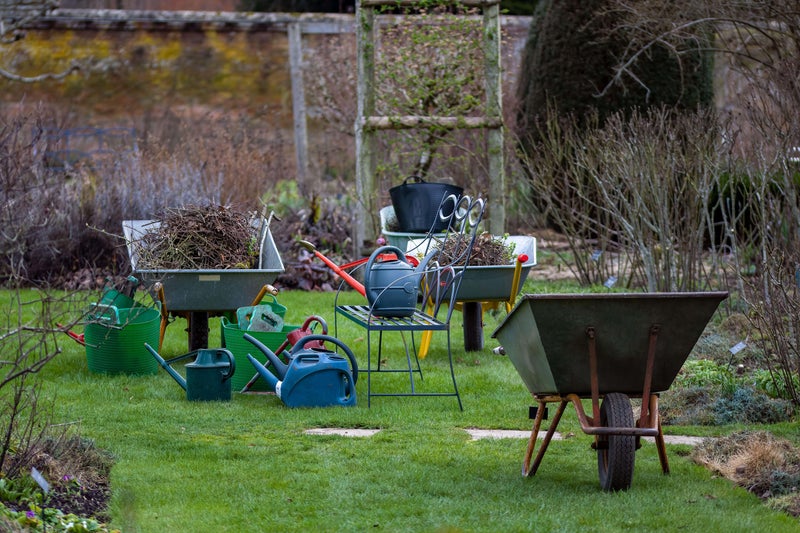In today's era of smartphone addiction, even the most secure of couples can find themselves placing a microscope over their partners' digital habits. With technology now considered an extension of ourselves, it's also worth assessing how much they truly impact - and potentially ruin - our relationships.
![[Over a third of adults believe partners who do not let their phone out of their sight could signify infidelity, along with spouses who refuse to add them on social media (stock image)]](https://i.dailymail.co.uk/1s/2025/02/21/14/95444643-14417867-Over_a_third_of_adults_believe_partners_who_do_not_let_their_pho-a-2_1740149680870.jpg)
As two-thirds of Brits admit to finding both online and physical infidelity equally devastating, many are facing breakdowns in their love lives as a result of phones. In light of this, UK-based mobile phone experts, Compare and Recycle, surveyed 2,000 adults to pinpoint the top ten digital red flags that can indicate a partner is being unfaithful.
The survey found 18 per cent have caught their partner engaging in a digital affair, which resulted in a staggering 59 per cent of those relationships ending - and offered their advice on what to look out for. Topping the list of suspicious activities, according to 59 per cent of Brits, is a partner who 'secretly' owns two phones without explanation.
More than half of Brits also found defensive behaviour to be the second biggest red flag, with many admitting to experiencing a partner shield, monitor or restrict access to their phone when asked to borrow it. Coming in third are deleted message threads, with 44 per cent of Brits suggesting this could indicate secretive or deceitful behaviour.
As two-thirds of Brits admit to finding both online and physical infidelity equally devastating, many are facing breakdowns in relationships as a result of phones (stock image). Over a third of adults believe partners who do not let their phone out of sight could signify infidelity, along with spouses who refuse to add them on social media.
The sixth top digital red flag, according to over a third of Brits, is a fairly obvious indicator of a partner straying: having a heart emoji next to a name on their contact list. A further third of Brits cited constant phone notifications as a red flag, along with partners who use password-protected apps, followed by spouses who always place their phone face down.
Finally, the tenth top indicator of infidelity, according to a quarter of Brits, is a partner who keeps their phone on airplane mode whilst around them. To help alleviate suspicion and navigate the best routes to establish digital trust in relationships, Compare and Recycle spoke to Rebecca Partridge, an accredited counsellor.
She revealed: 'In maintaining trust around social media and messaging apps, it is beneficial for couples to define what digital infidelity means, thereby setting boundaries of what they expect within the relationship.'. 1. A partner 'secretly' owning two phones.
2. Defensive behaviour. 3. Deleted message threads. 4. Partners who don't let their phone out of their sight. 5. A partner who doesn't add you on social media. 6. Having a heart emoji next to a contact name. 7. Constant phone notifications. 8. Password-protected apps.
9. Partners who always places their phone face-down. 10. A partner who keeps their phone on airplane mode whilst around you. Source: Compare and Recycle. Over a third of adults believe partners who do not let their phone out of their sight could signify infidelity, along with spouses who refuse to add them on social media (stock image).
She added: 'Communication and ownership of behaviour is also useful.'. The counsellor encouraged couples to have an 'open conversation' about boundaries and discuss which online behaviours can be mutually considered acceptable. She also recommended prioritising transparency over snooping and directly discuss any concerns, a checking a partner's phone could stem from insecurity rather than actual betrayal.
However, Rebecca stressed the importance of privacy, suggesting couples make it clear where the line is drawn between maintaining personal space and engaging in behaviour that could compromise trust. It comes as a private investigator has exposed the sneaky app beloved among cheaters for discreetly communicating with their lovers.
Taking to TikTok, Australian private investigator Cassie Crofts, shared the crafty mobile trick used by adulterers to pursue extramarital affairs while avoiding suspicion from their partners. According to the expert, rather than sifting through and deleting strings of text messages with flings, a number of lover rats are now turning to the notes app to conduct their illicit activity.































